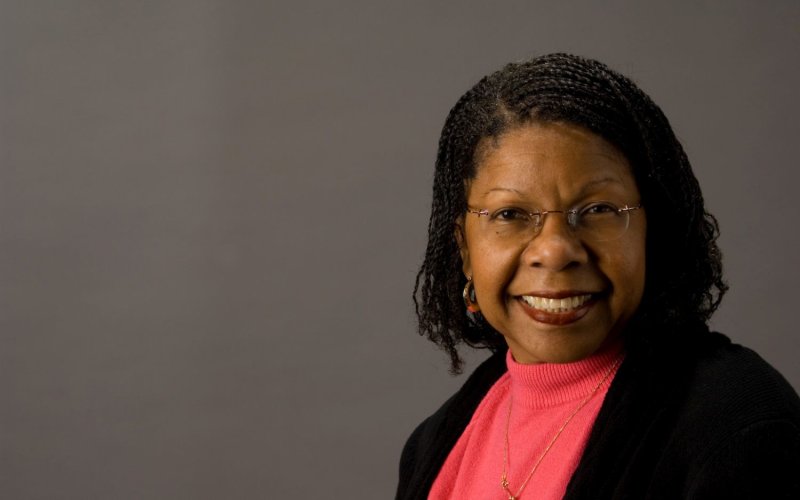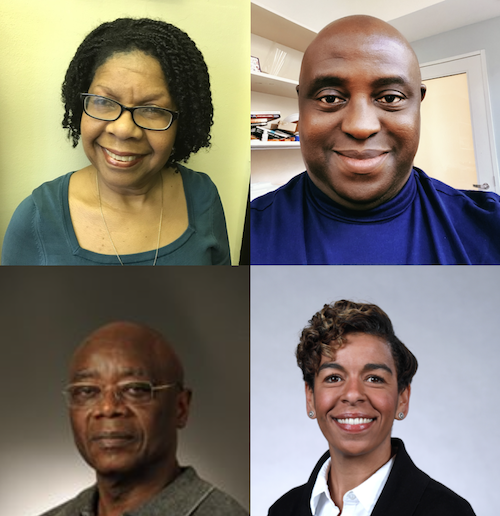UAlbany Africana Studies Faculty Awarded $100,000 Grant to Grow Field, Increase Community Engagement

By Bethany Bump
ALBANY, N.Y. (Nov. 21, 2023) — The University at Albany’s Africana Studies faculty have been awarded a $100,000 grant from the Mellon Foundation to support their work in making an impact and growing the field of Africana studies across local communities and beyond.
The award will support the faculty as they host a series of activities over the next several years designed to expose and engage communities with the discipline, which explores Africa and African American ways of life, languages, Black religion, arts, literature, psychology, history, law, community, popular culture and more.
As part of the initiative, UAlbany will host a national conference in 2024 featuring key experts with diverse views on the field. The faculty also will organize an annual SUNY-wide workshop where chairs, directors and other stakeholders from Africana/Black Studies academic programs across SUNY can share best practices, with the goal of developing relationships and increasing collaborations that lead to progress and growth in the field.
Work to secure the award was led by Marcia Sutherland, associate professor, undergraduate program advisor and former chair of the Africana Studies Department. She will be joined by Africana Studies lecturers Jennifer Burns, Marcel Kitissou and David Agum in carrying out grant activities, and is currently working to develop collaborations with other SUNY campuses on activities that will include seminars and community group interventions.

Other activities supported by the Mellon grant will include:
- Two inner-city, community-focused seminars in the Capital Region exploring possible relationships between knowledge systems and research findings in the field of Africana Studies and community development.
- Development of an annual undergraduate capstone course focused on research methods and experiential learning. Working with designated local sites, students will engage in archival work and examine digital databases on the creation and development of SUNY-wide Africana/Black Studies academic units. This work will be housed on a newly produced and publicly accessible UAlbany Africana Studies Lab website, and will serve as a model for academic programs at other institutions.
- Creation of new partnerships with local community colleges designed to expose the schools to multidisciplinary approaches in the field and engage students from upstate and downstate high schools in public discussion opportunities.
- An annual research day on “Gender, Sexuality, Heritage, Identity/Ethnicity: The Quest for Understanding,” which would be open to all SUNY students studying Africana/Black Studies, as well as students from non-SUNY schools in the Capital Region.
- Organization of a statewide event in 2026 featuring national experts in the arts and humanities who will discuss the importance of these disciplines to the growth and progress of the field of Africana Studies.
UAlbany’s Africana Studies programs date to 1969 and have been recognized nationally for their faculty and degree offerings.
Of the 64 SUNY campuses, only 13 have Africana Studies programs. Of those, only six offer majors and only two — UAlbany and Stony Brook University — offer graduate programs. There are no doctoral programs, but the hope is that activities and interventions supported by the Mellon grant can help grow the number of students in these programs and advance them to the next level, according to the grant proposal.
“Our community engagement through seminars will increase community members’ understanding of their history, and traditions, and of their capacity to be agents of transformational change,” the proposal reads. “Strategic outreach to downstate and upstate community colleges and the inclusion of high school-aged students in public discussions will provide similar growth in the understanding of issues and provide tools for action.”




